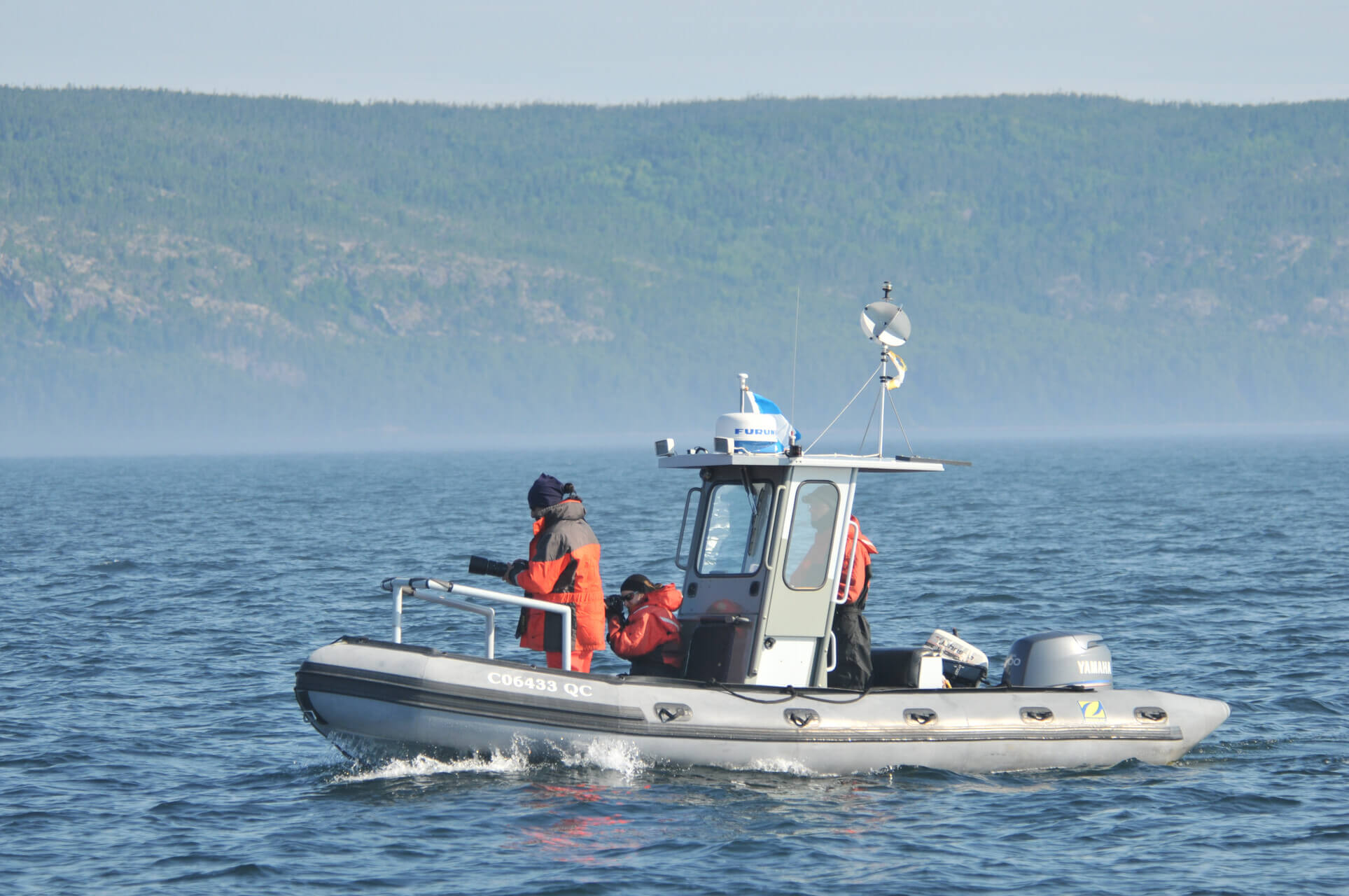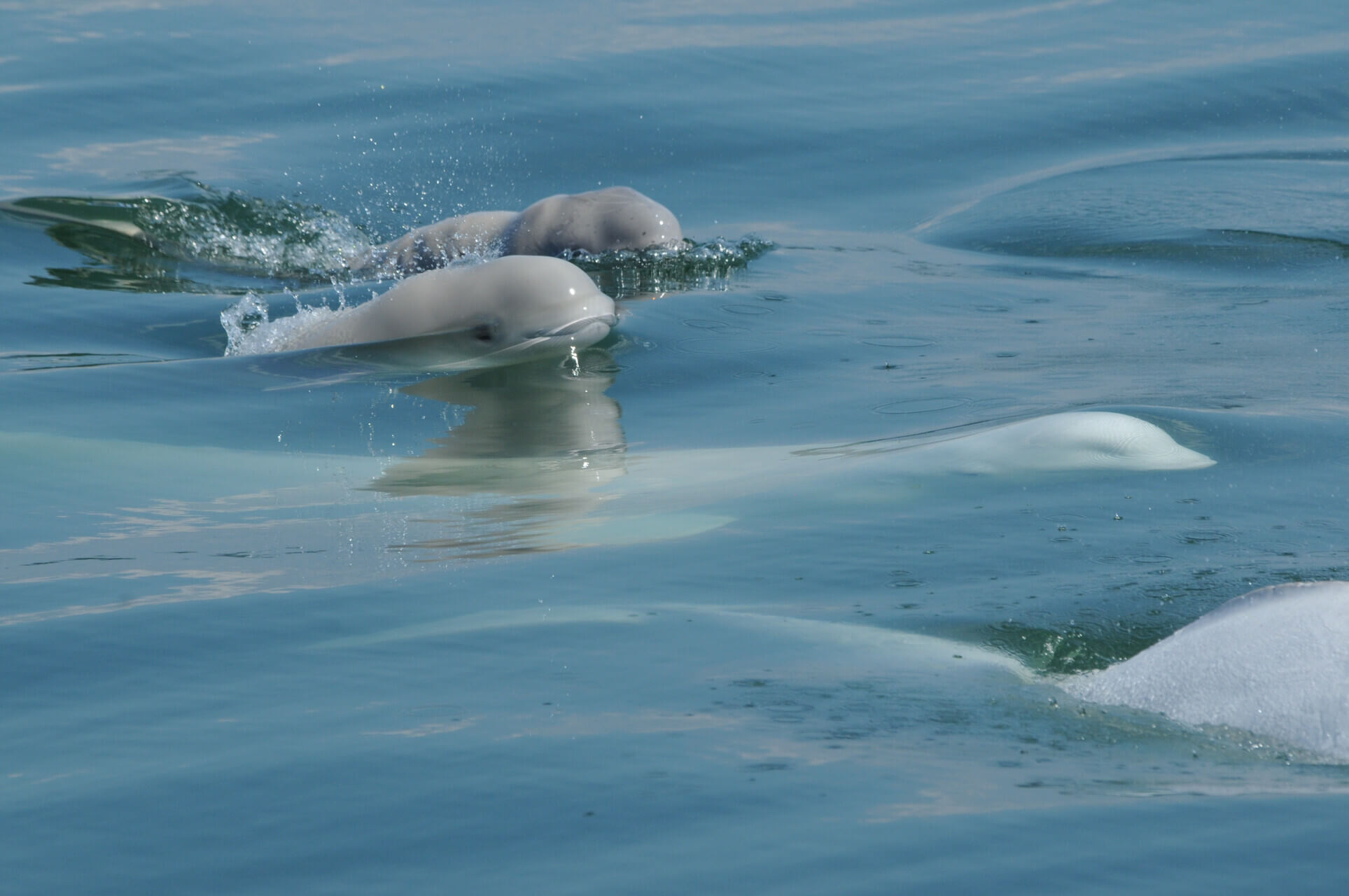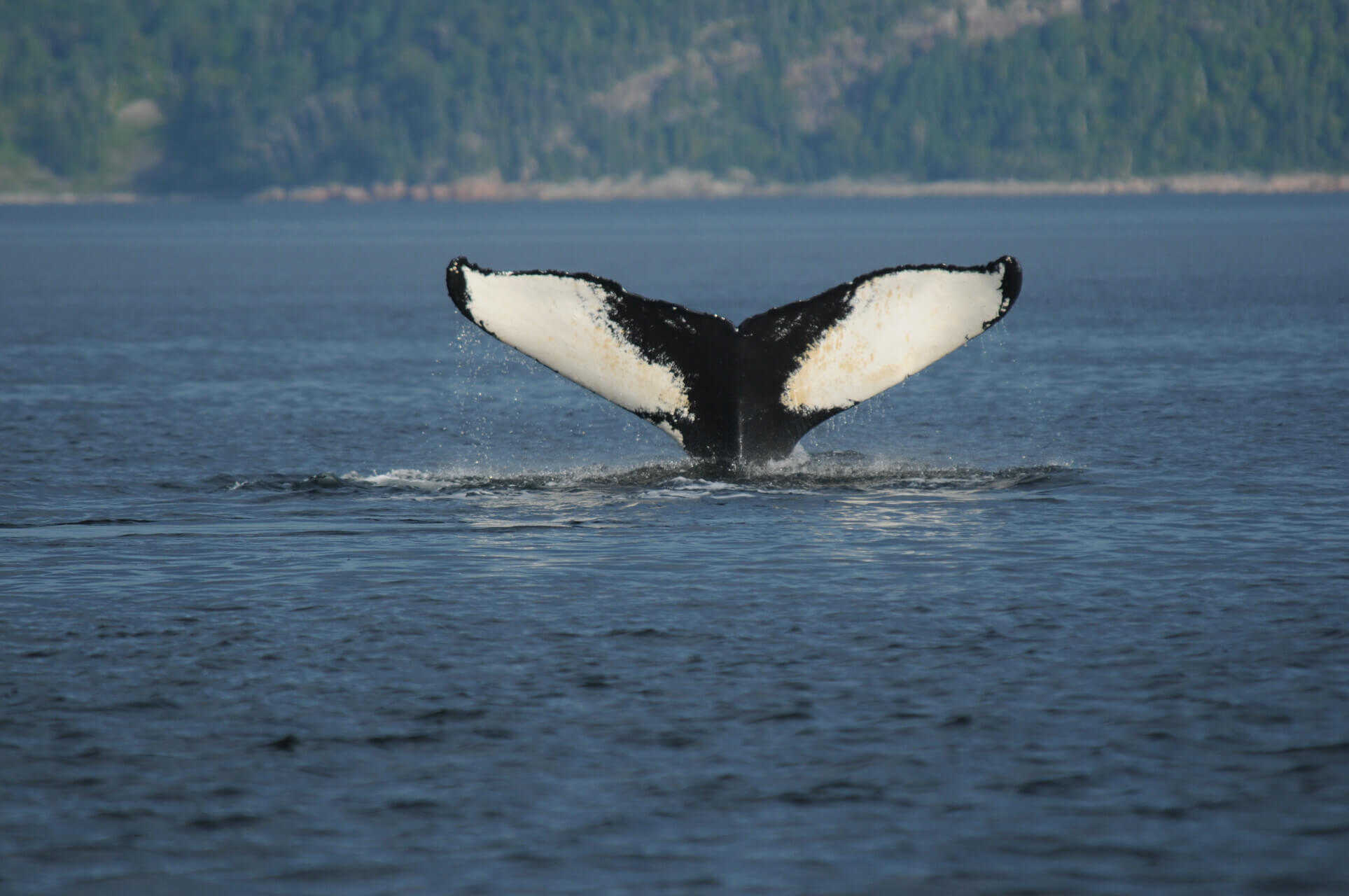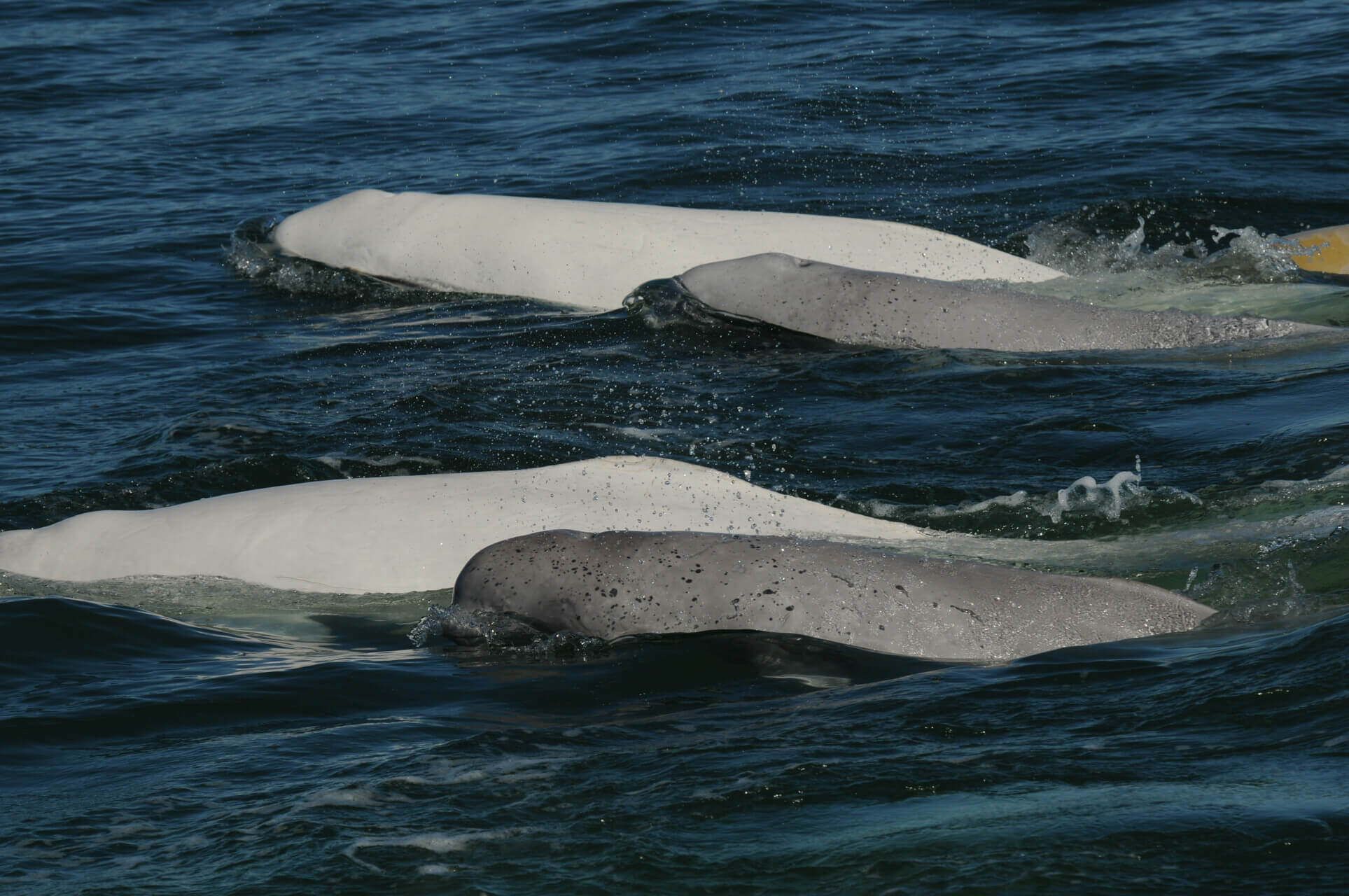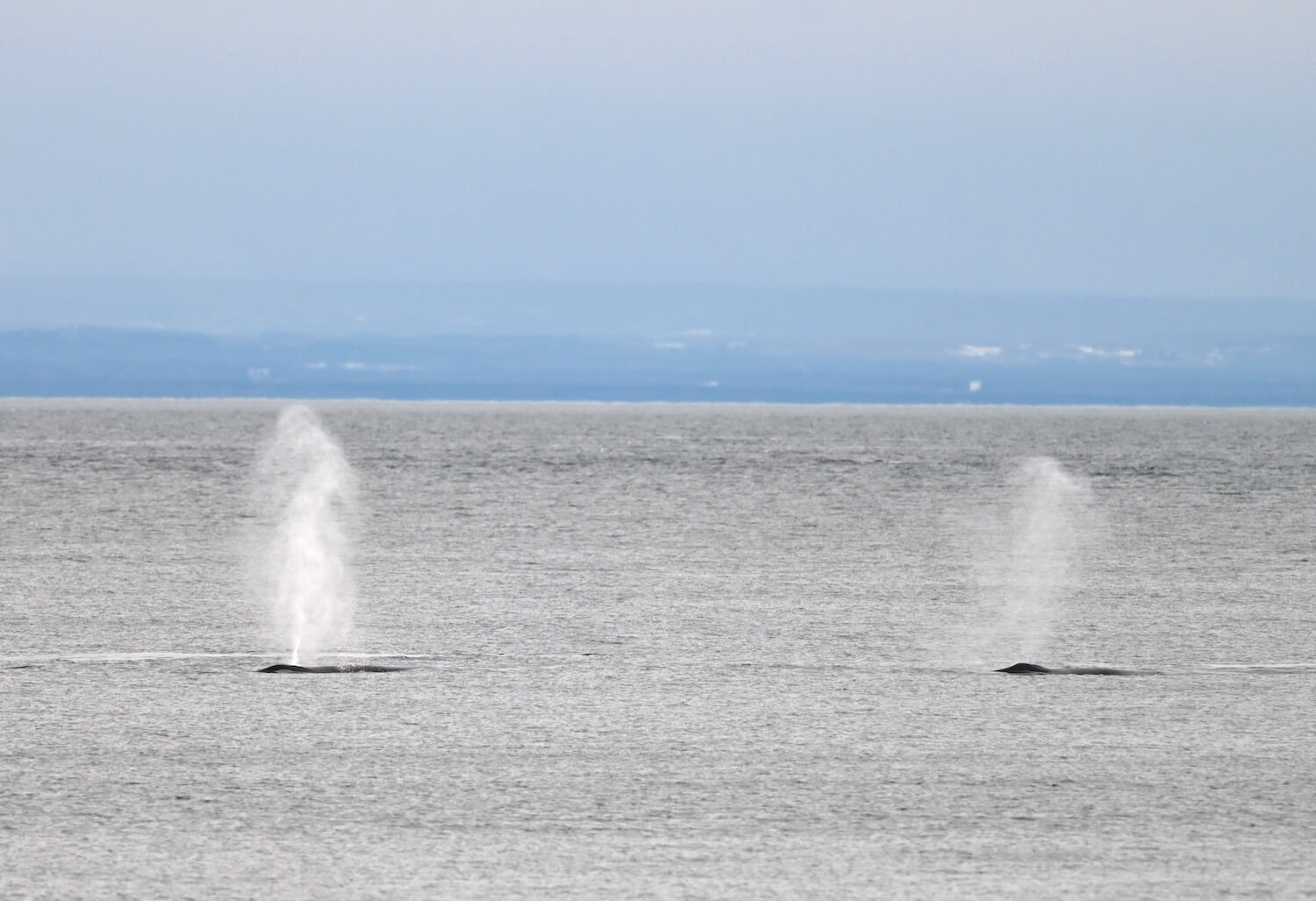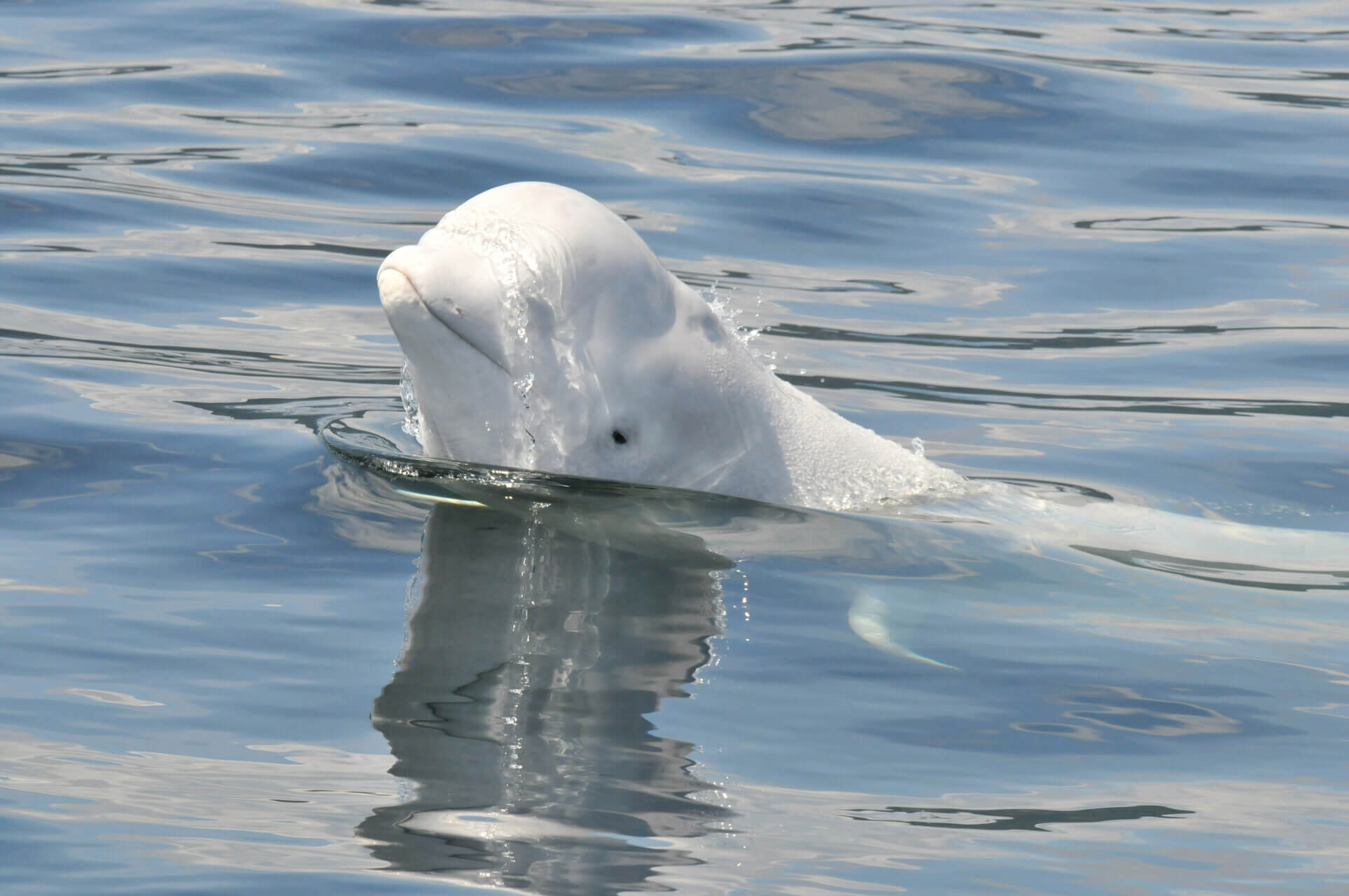In a few weeks from now, scientists will be plying the waters of the St. Lawrence with the aim of better understanding whales, their environment and the threats they face. Naturalists will gear up to tell “whale tales” to the general public (whether on shore or on the water), while others will share the latest news on marine mammals from behind their screens.
There are plenty of jobs related to the giants of the seas! As this new season gets underway, here are some tips for taking a professional dive into the world of marine mammals.
1. Be passionate about whales
No need to dream about them at night or spend your days cruising the coastline in hope of spotting them! Above all, it’s about appreciating them and desiring to contribute to their protection – and there are a multitude of ways to achieve this. It is the passion for this field that will push you to move forward and achieve your professional goals. By cultivating your curiosity about whales, you will be more inclined to want to protect them and get involved in projects that support them.
2. Have a degree in science… or another field!
To work with whales, you must understand their habitat, their roles in the environment and their behaviours, but that’s not all! The world of marine mammal work is quite diverse in terms of jobs, so it naturally takes people with different backgrounds to fill all these positions. And jobs relating to whales can be found in the fields of tourism, communications, management, and many others. Once you have a scientific basis in whales, it’s up to you to choose the area that interests you most!
3. Fill your CV with relevant experience
Before pursuing a career in whales, it is relevant and even essential to acquire other experiences and skills. This will definitely help you advance your career and stand out from your peers. For example, if you want to work as a naturalist at the Marine Mammal Interpretation Centre in Tadoussac, it would be a big plus to have prior experience as an interpreter guide under your belt, regardless whether or not such a stint was related to whales. Many skills are transferable from one job to another, you just have to seek them out!
4. Have good communication skills
People love to talk about whales! And most jobs in the field require solid communication skills in both French and English if the position is based in Quebec. Whether it’s intended for the general public or the scientific community, you will need to be able to adeptly communicate information to your target audience, both verbally and in writing.
5. Stay up to date on whale news
Science is advancing by leaps and bounds, so much that sometimes it’s difficult to keep up! However, it is important to stay current on the latest news concerning whales if you want to work with marine mammals. Whether it’s by regularly consulting scientific publications, reading the latest articles posted on Whales Onlinet or subscribing to mailing lists for internship/job offers or scientific articles, there are many ways to stay abreast of the latest issues concerning whales!
6. Enjoy working as a team
Whale conservation cannot be achieved at the snap of a finger! In any type of job, you will have to collaborate with different people and experts in their fields. One must therefore demonstrate openness, empathy, kindness and the ability to help others. Inevitably, уou will need your colleagues to lend you a hand in certain situations, and vice versa. The key here is sociability!
7. Ask questions… even if it’s intimidating!
Anytime one tackles a job in a new field, it’s normal for one’s head to be abuzz with questions! You need not hesitate to turn to specialists or even contact a career advisor to make informed career decisions. It can also be worthwhile to try to establish connections with people who actually work in the field, which is also a great opportunity to expand your network! Everyone has to start somewhere, so don’t be afraid to ask questions.
8. Persevere
Even if you follow each of the seven points described above, you will still need a good dose of determination to succeed in making your mark in the world of whales! Depending on the field you are interested in, the competition can be fierce. You also need to demonstrate the ability to adapt, as things don’t always unfold as we might like. But with perseverance and passion, your dream of working with whales can become a reality. Believe in yourself!




